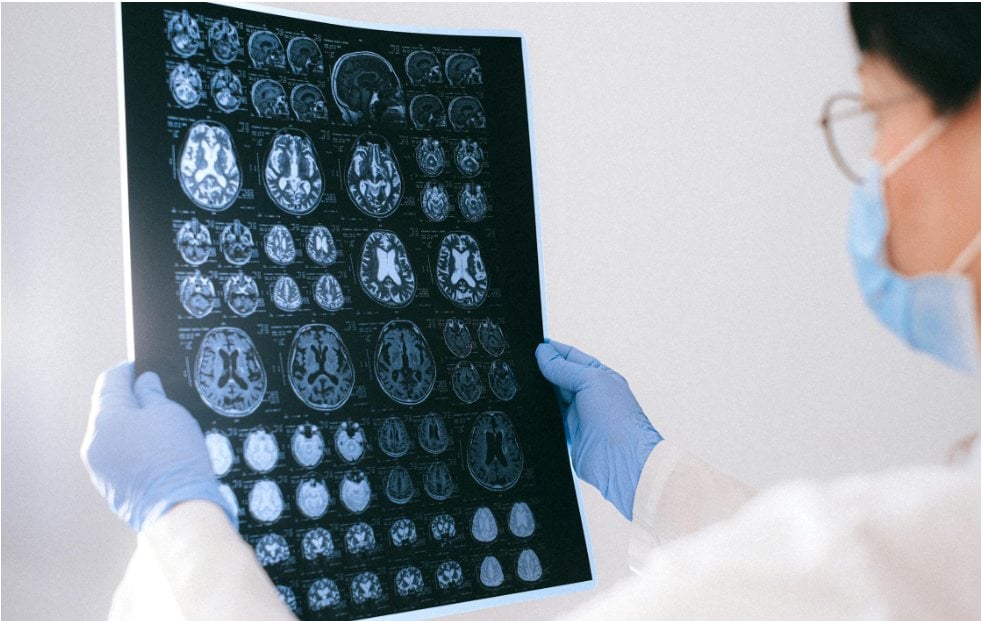A new study has found that patients taking medications called dopamine agonists for a common type of pituitary tumor have a higher risk of developing impulse control disorders. The research, published on June 18, 2025, represents the first UK study to investigate this connection specifically in patients with prolactinoma.
Researchers from the University of Birmingham studied 200 patients with various types of pituitary tumors. They discovered that people with prolactinomas (the most common type of pituitary tumor) who were treated with dopamine agonists showed significantly more impulse control problems compared to patients with different types of pituitary tumors who weren’t taking these medications.
“We found that patients with prolactinomas treated with dopamine agonists were more likely to show manifestations of impulse control disorders, compared to those with non-functioning pituitary adenomas who weren’t treated with dopamine agonists,” explained Professor Niki Karavitaki, who led the research team.
But what exactly are impulse control disorders? Simply put, they involve a person’s inability to resist urges that might be harmful to themselves or others. These can include compulsive gambling, hypersexuality (excessive sexual urges or behaviors), uncontrollable shopping sprees, or binge eating. Some patients might also develop unusual repetitive behaviors that serve no purpose.
The study highlights a potential downside of an otherwise effective treatment. Dopamine agonists work by mimicking the brain chemical dopamine, helping to shrink pituitary tumors and normalize hormone levels. However, by stimulating certain dopamine receptors, especially those in the brain’s reward system, these medications can sometimes trigger these impulsive behaviors.
Professor Karavitaki emphasized the importance of awareness: “Our main recommendation is that clinicians and GPs should be proactively aware of the risk surrounding those on dopamine agonists developing impulse control disorders and consider how best to keep patients and their family members informed throughout treatment.“
Similar Posts
This advice is particularly important because impulse control disorders can have serious consequences. Patients might accumulate debt through gambling or shopping, damage relationships through hypersexuality, or face other personal difficulties. Many patients feel shame about these behaviors and hide them from doctors and family members, which delays getting help.
Despite these concerns, the researchers stress that dopamine agonists remain valuable for treating prolactinomas. Leaving these tumors untreated can lead to fertility problems, hormone deficiencies, bone loss, increased heart disease risk, and potential tumor growth.
“Whilst the aim of this study was to raise awareness around the increased likelihood of some patients on dopamine agonists developing impulse control disorders, it’s still an extremely important form of treatment that benefits many individuals,” noted Professor Karavitaki.
The research team hopes their findings will increase awareness about these medication risks while encouraging more studies on how to best manage prolactinomas.

For patients currently taking dopamine agonists, doctors recommend being alert to any unusual changes in behavior patterns. Family members should also be informed about potential side effects, as they might notice behavioral changes before the patient recognizes them. Open communication with healthcare providers is essential, as adjusting medication dosage can often help manage these side effects while still treating the underlying condition.
The study was published in The National Library of Medicine.
Frequently Asked Questions
The study discovered that patients with prolactinomas (a common type of pituitary tumor) who were treated with dopamine agonists showed a significantly higher prevalence of impulse control disorders compared to patients with other types of pituitary tumors who weren’t taking these medications. This is the first UK study to investigate this connection specifically in patients with prolactinoma.
The impulse control disorders linked to dopamine agonists include compulsive gambling, hypersexuality (excessive sexual urges or behaviors), uncontrollable shopping sprees, and binge eating. Some patients might also develop unusual repetitive behaviors that serve no purpose, called “punding,” or excessive engagement in hobbies known as “hobbyism.”
The research team from the University of Birmingham studied 200 patients with various types of pituitary tumors. The study compared patients with prolactinomas who were treated with dopamine agonists to those with non-functioning pituitary adenomas (NFPAs) who were not on dopamine agonists.
No, patients should not stop taking their prescribed medication without consulting their doctor. Despite the risks identified in the study, researchers emphasize that dopamine agonists remain valuable and important treatments for prolactinomas. Professor Karavitaki stated: “Whilst the aim of this study was to raise awareness around the increased likelihood of some patients developing impulse control disorders, it’s still an extremely important form of treatment that benefits many individuals.”
Leaving these tumors untreated can lead to serious consequences including fertility problems, hormone deficiencies, bone loss, increased heart disease risk, and potential tumor growth.
Dopamine agonists work by mimicking the brain chemical dopamine. While this helps shrink pituitary tumors and normalize hormone levels, these medications can also stimulate dopamine receptors in the brain’s reward system. This overstimulation can sometimes trigger impulsive behaviors by amplifying the sense of reward from certain activities, making it difficult for some patients to resist harmful urges.
Patients currently taking dopamine agonists should:
1. Continue taking their medication as prescribed
2. Be alert to any unusual changes in behavior patterns
3. Inform family members about these potential side effects, as they might notice behavioral changes before the patient recognizes them
4. Maintain open communication with healthcare providers about any new urges or behaviors
5. Remember that adjusting medication dosage can often help manage these side effects while still treating the underlying condition


















